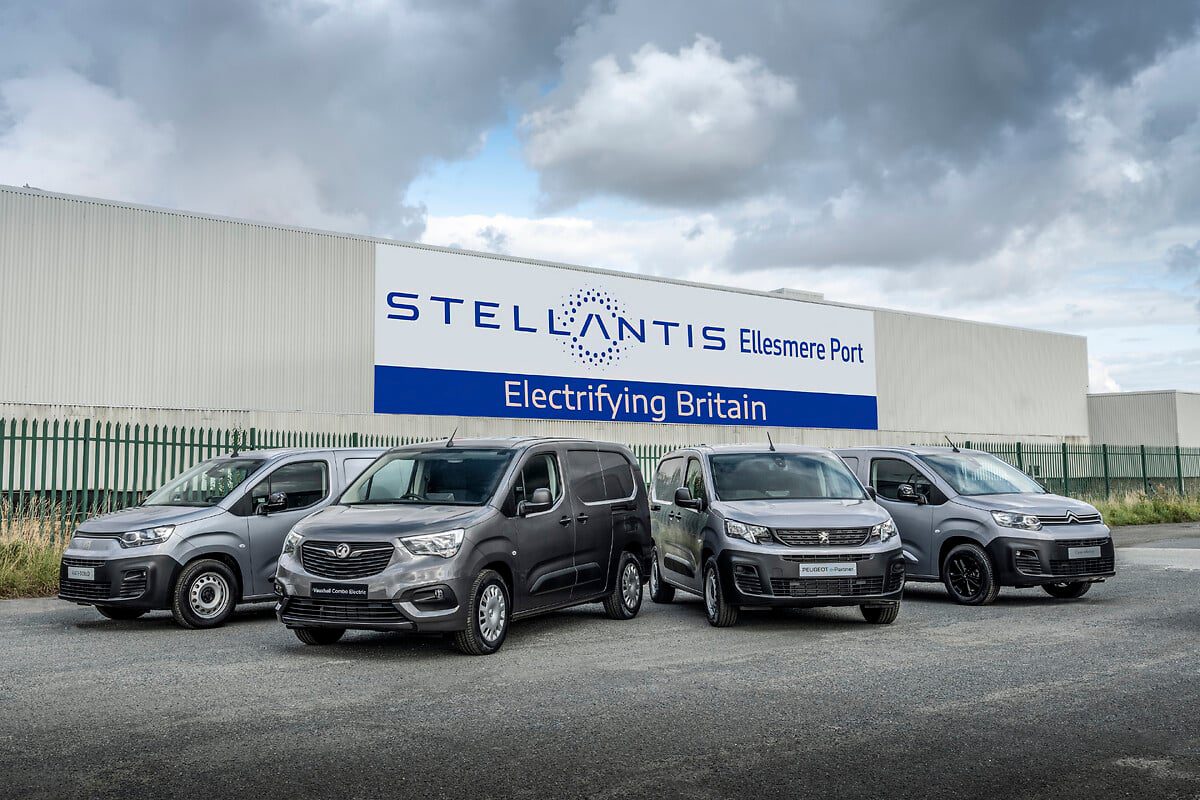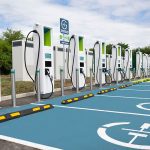Hey, EV fans! Jack here with some big news about the UK’s EV future. The government is taking a hard look at its ambitious Zero Emission Vehicle (ZEV) sales targets after concerns from major automakers like Stellantis and Nissan. With mandates requiring 22% of all new cars and 10% of vans sold this year to be fully electric, the industry is feeling the heat. Falling short means a hefty penalty of £15,000 per vehicle—a cost manufacturers are eager to avoid.
But here’s the kicker: the current targets might be too aggressive for the market to handle. Industry leaders argue that demand isn’t quite there yet, and the government’s push could jeopardise thousands of jobs at plants like Stellantis’ Ellesmere Port and Nissan’s Sunderland facility.
What’s Happening Now?
Ministers Louise Haigh and Jonathan Reynolds are meeting with industry leaders to find a way forward. Among the proposals:
- Adjusting quotas for van production, which is a crucial sector for many UK factories.
- Counting UK-made EVs sold abroad toward domestic targets, giving automakers more flexibility.
- Reintroducing EV subsidies for private buyers, a big one considering grants for private EV purchases were scrapped in 2022.
These changes could ease pressure on automakers while still keeping the UK’s climate goals on track.
Why This Matters
Stellantis and Nissan are just two of the big players raising red flags. Stellantis’ CEO, Carlos Tavares, has warned that the ZEV mandates are nearly double the “natural market demand.” Meanwhile, union leaders are urging companies to commit to their UK plants and warning against job cuts.
At the same time, Nissan has hinted at potential long-term challenges for its Sunderland plant if the current targets remain unchanged. This debate is shaping up to be a turning point for the UK’s automotive sector.
Could Subsidies Make a Comeback?
One exciting possibility is the return of EV subsidies for private buyers. The lack of incentives has been a sore point since their removal, and their reintroduction could reignite consumer interest in going electric.
Jaguar Land Rover has even proposed awarding credits for reducing factory emissions, a move that could give manufacturers another way to meet their quotas without overburdening the market.
My Take as EV JACK
This news highlights a crucial moment for EV adoption in the UK. While I love the government’s ambition, we have to be realistic about what the market and infrastructure can handle. Yes, the targets are driving innovation, but they need to be balanced with practical support—both for manufacturers and consumers.
As someone who’s all-in on EVs, I hope any adjustments to the targets don’t slow progress but instead focus on boosting demand through better incentives and infrastructure. A thriving EV market benefits everyone—from drivers to the planet.
What do you think? Should the government ease off the gas (or electricity, in this case) or keep pushing ahead? Drop your thoughts below!




If we are to see a significant change in the level adoption of EVs then I think we would all agree something needs to be done, which probably means there needs to be both a carrot and stick approach. The current approach of just penalising manufacturers for not hitting targets, is just the stick and the study of ‘change’ would suggest that it is an approach doomed to failure (just as it seems to be at the moment)
Demand needs to be stimulated, such that manufacturers have a better chance of meeting the targets, which let’s be honest should be an aim for the environment if not anything else, and given the Government has the 2030 target for no new Petrol or Diesel cars to be sold, so something has to be done to give drivers both the desire and the confidence to buy an EV. Those of us who own one already see all the benefits but there is so much big oil ‘sponsored’ negative publicity out there that there perhaps needs to be more of a push from the Government to provide accurate and truthful information, to try start to change public opinion – change rarely happens by itself it needs support, those unsure need their ‘hands to be held’ to support them through the change, so sitting back and just punishing manufacturers for lack of sales (using the ‘stick’ approach alone) will never work, as the only solution they have to that is either to push up the price of petrol or diesel vehicles which would drive up inflation, or to heavily discount EVs, which is unsustainable for them.
The Government is also not helping with the proposed taxation policy, whilst I agree that EVs should pay vehicle tax as all other cars do, they do use roads after all (although it would be nice if that tax was used to improve our roads!), for many EVs to have to pay a luxury car supplement as they cost over £40k seems illogical, as most don’t buy an EV for its luxury, they are just more expensive due to the ‘new’ technology, maybe the level with EVs needs to be set £10/£20k higher?
So am I answering you question, not sure, would a cash bung to people encourage them to buy an EV, well possibly as it would potentially reduce the price somewhat more in line with petrol and diesel, but is that the right way? Perhaps a better way would be to look at how to reduce the disparity between those who can charge at home and those who do not have that option. If we want the 40% of people who live in terrace houses, with no option of a home charger, to adopt then there needs to be a way to reduce the disparity in the price of charging at home and the 10 times plus cost of public charging; it could almost be regarded as tax on the poor (who are more likely to live in terraced houses, London perhaps being an exception here) I believe this would be a better more focussed approach than an unfocussed EV subsidy, which would do nothing to reduce this disparity.
So yes they should push ahead, but maybe offer more of a carrot, than just the stick, but look to focus the support and perhaps sponsor less biased information (although given trust in Governments generally, perhaps that may be harder than it sounds).
You’ve brought up some excellent points here, and I completely agree that a balanced “carrot and stick” approach is needed to drive EV adoption. Penalising manufacturers alone won’t solve the problem—demand needs to be actively stimulated so that people feel confident and motivated to make the switch.
The disparity in charging costs between those who can charge at home and those reliant on public chargers is a critical issue. Bridging that gap could make EVs far more accessible to a broader audience. The government could explore subsidising public charging or introducing measures to ensure pricing parity.
Another valid concern is the luxury car tax on EVs. It doesn’t make sense to penalise EV buyers for the higher upfront costs driven by new technology. Adjusting the threshold for EVs would reflect the reality of the market and encourage more people to go electric.
As for combating misinformation, you’re right—there’s a lot of negative noise around EVs, much of it unfounded. A more transparent, government-backed campaign focused on the actual benefits of EVs could help shift public perception.
Ultimately, a thoughtful combination of incentives, fair policies, and accessible infrastructure is what’s needed to bring about real change. Thanks for sharing such a well-rounded perspective!